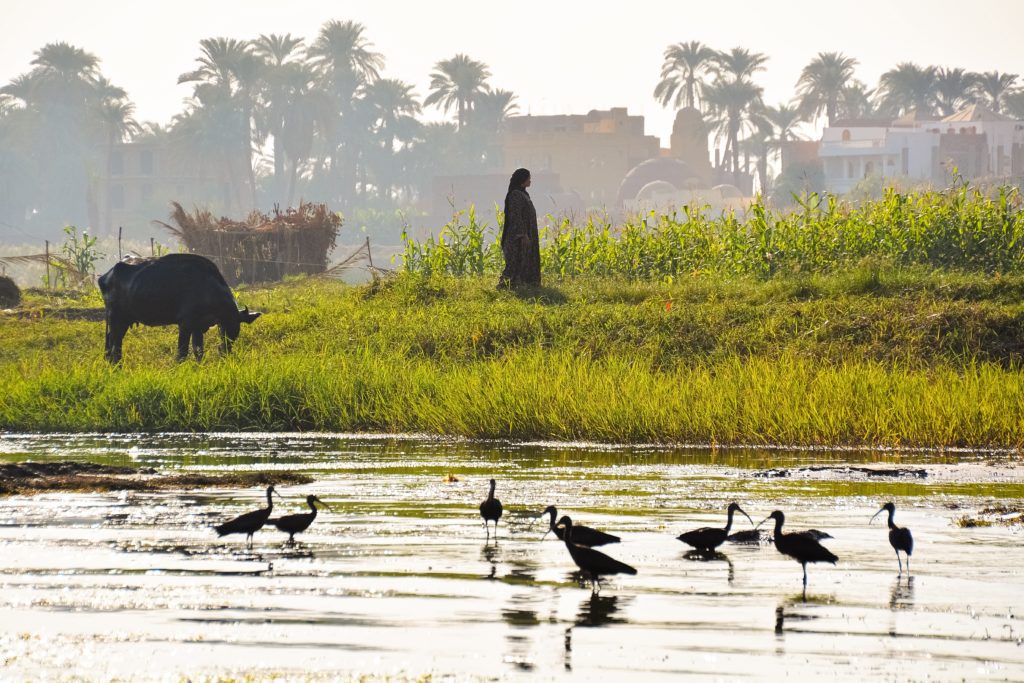Whilst writing my bachelor’s degree thesis on Water Diplomacy in the Grand Ethiopian Renaissance Dam (GERD): the dispute between Egypt, Sudan and Ethiopia, I came across the concept of the ‘WEF nexus’: the point where Water, Energy, and Food meet; since then, I’ve used the term countless times. It wasn’t so much the concept as such that caught my attention, but rather the message I learnt from it.
The WEF nexus aims to understand the interdependencies between water, energy, and food systems – i.e, where changes in the demand, policies, and management of one of these three systems impact the other two, and the broader environment. Let’s take an example using real data from the Food and Agriculture Organization of the United Nations (FAO): although agriculture is the largest consumer of water – accounting for 70% of global freshwater use – roughly 30% of total energy consumption goes to the production, transportation, and distribution of food, as well as extracting, pumping, lifting, collecting, transporting, and treating water.
The interdependencies between water, energy and food systems are evident, but you may be wondering – what is the role of the ‘broader environment’ mentioned before? Put simply, it serves to exacerbate the interconnections. Population growth, economic expansion, urbanisation, unsustainable growth – among other socio-economic and environmental factors – are increasing the demand for water, energy and food whilst these resources are becoming increasingly scarce due to this growth in demand.

As a student of International Relations (IR), I have realised that there are far more nexuses than the WEF nexus, and that there are many more yet to be explored. I was mistaken when I thought of IR as just the interaction between sovereign states; today I see International Relations with a multidisciplinary perspective, in which states, international organisations, businesses, non-governmental organisations, individuals, and other social processes and systems coexist and interact altogether – a system where the actions of one have an impact on all those around it.
One can find these interdependencies and interactions at any level. Let’s use the example of my case study of water diplomacy in the GERD dispute between Egypt, Sudan, and Ethiopia. Water diplomacy is a sub-discipline of IR, but what does water stand for? Water is a vital resources for all human beings and ecosystems, and more than 40% of the global population depends on freshwater from rivers, which typically correspond to two or more countries.
The GERD centres on the river Nile – one of the longest rivers in the world – and the management of the water (by nature) requires strong interactions between the states that the river passes through. Having agreed that IR cannot be understood from a state-centric perspective, water diplomacy cannot be seen this way either. So, to overcome this challenge, in my research I searched for nexuses beyond the state-centric sphere by identifying and exploring synergies for better cooperation among key sectors, actors, and institutions. For example, I analysed the role of journalists in explaining water diplomacy, how companies influenced the dispute, and how minority groups and vulnerable communities were affected by the decisions made at different levels of governance; I even analysed the language used by those who claim to know how to solve the dispute. Water diplomacy in the GERD framework is not a question of sovereign states, but rather of a complex multi-level system made up of multiple actors.
There is no ‘one-size-fits-all’ solution, which is why we must start thinking and using a cross-disciplinary toolkit to understand and manage complex and critical solutions. Let’s find nexuses where we haven’t yet found any!
The first Mediterranean Day will be celebrated on the 28th November 2021. Is this the emergence of a new nexus? Although the Mediterranean Sea has always united us, there has never been a day dedicated to celebrating and commemorating Mediterranean culture. Maybe, we have finally realised that we must come together and find synergies across the northern and southern shores, and different sectors, organisations and individuals for the region to grow and prosper.
I encourage you to look around and apply this holistic vision to your surroundings, because I’m sure that there is always a nexus to create or a place to join!
